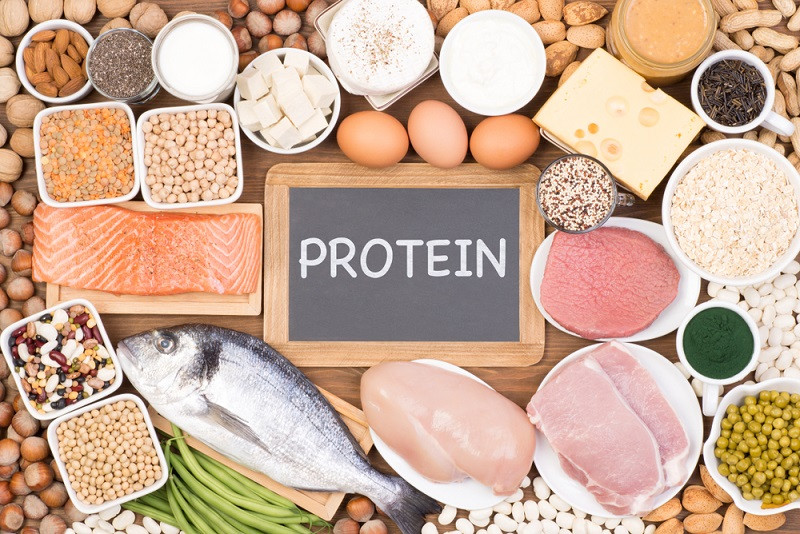Are you feeling drained and exhausted throughout the day, struggling to find the energy to keep up with your busy schedule? (Who doesn’t?)
The key to reclaiming your vitality and staying energized lies in the realm of nutrition. In this comprehensive guide, we’ll explore the essential nutrients that play a crucial role in fueling your body, the best and worst foods for sustaining energy levels, and how to create a balanced diet for optimal vitality.
We’ll delve into the impact of lifestyle factors such as exercise, sleep, and stress management on your energy levels. By the end of this article, you’ll be equipped with the knowledge to revitalize your energy and embrace a healthier, more energetic lifestyle.
Why Is Nutrition Important for Energy?
Nutrition plays a vital role in providing the necessary energy for physical and mental focus, overall health, and wellness. A balanced diet and proper nutrition are essential for maintaining vitality and well-being. Many Registered Holistic Nutritionists believe that food is both the source and the cure of many of life’s diseases and health problems.
Without the right nutrients, the body struggles to function optimally, leading to decreased energy levels, lack of concentration, and increased susceptibility to illnesses. By fueling the body with a variety of nutrient-rich foods, individuals can boost their energy levels, enhance mental clarity, and support their immune system.
Adopting a diet rich in vitamins, minerals, and antioxidants can help to reduce the risk of chronic diseases and support overall health and well-being.

What Nutrients Are Essential for Energy?
Several essential nutrients contribute to sustaining energy levels and overall well-being, including vitamins, minerals, and macronutrients. Understanding the role of these nutrients is crucial for maintaining a balanced and energy-rich diet.
Carbohydrates
Carbohydrates are a primary source of energy for the body, fulfilling essential dietary requirements and serving as a key energy source for physical and mental activities.
They are broken down into glucose, which is then utilized by the body as fuel for various metabolic processes. In addition to providing energy, carbohydrates play a crucial role in supporting brain function and maintaining physical endurance during exercise. Proper intake of carbohydrates ensures stable blood sugar levels, enhancing overall energy levels and preventing fatigue. It’s essential to strike a balance in carbohydrate consumption to meet energy requirements without excessive intake leading to weight gain or other health concerns.
Proteins
Proteins are crucial for energy restoration and essential for effective nutrient absorption, playing a vital role in maintaining overall nutritional balance and supporting energy levels.
They serve as the building blocks for tissues, enzymes, and hormones, aiding in cell repair and growth. Proteins help regulate metabolism and support the immune system. Without adequate protein intake, the body may struggle to maintain proper energy levels and efficient nutrient utilization, impacting overall health and wellbeing. Therefore, incorporating protein-rich foods into the diet is essential for sustaining energy, promoting muscle recovery, and achieving optimal nutrient absorption.

Fats
Fats provide energy-boosting nutrients and are essential components of dietary choices, contributing to energy optimization and overall nutritional wellbeing.
They play a critical role in fueling the body, as they are more energy-dense than carbohydrates and proteins. Incorporating healthy fats, such as those found in avocados, nuts, and oily fish, can support sustained energy levels and aid in the absorption of fat-soluble vitamins. By including these sources of healthy fats in the diet, individuals can promote optimal energy metabolism and maintain a balanced approach to nutrition.
Vitamins
Vitamins play a crucial role in supporting energy recovery and revitalization, contributing significantly to overall energy levels and well-being.
They act as essential cofactors in numerous metabolic pathways, enabling the release of energy from nutrients and supporting the body’s energy production processes. Specifically, vitamins B and C are known for their role in energy metabolism, with vitamin B complex playing a key part in converting food into energy and vitamin C supporting adrenal gland function to reduce fatigue.
Vitamin D plays a vital role in regulating energy levels and supporting overall well-being, while vitamin E acts as a powerful antioxidant, protecting cells from oxidative stress to maintain energy levels.

Minerals
Minerals provide essential nutritional support for energy renewal, playing a pivotal role in maintaining overall well-being and sustaining optimal energy levels.
They are crucial for various bodily functions, such as enzyme reactions, muscle contractions, and nerve impulses. Minerals like iron, magnesium, and potassium are essential for energy production and metabolism. They help in transporting oxygen, regulating electrolyte balance, and supporting cell function.
Without adequate mineral intake, the body may experience fatigue, weakness, and decreased cognitive function. Therefore, ensuring sufficient mineral intake through a balanced diet is vital for sustained energy levels and overall health.
What Are the Best Foods for Energy?
Consuming balanced meals comprising whole foods and nutrient-dense options is essential for obtaining energy-boosting nutrients and sustaining overall energy levels.
A diet rich in nutrient-dense foods such as lean proteins, whole grains, fruits, and vegetables provides the necessary vitamins, minerals, and antioxidants to support energy production and combat fatigue. Incorporating these whole foods into meals helps stabilize blood sugar levels, preventing energy crashes and promoting sustained vitality throughout the day. By prioritizing a balanced plate with a variety of nutrient-dense options, individuals can optimize their energy levels, improve mental clarity, and enhance overall well-being.
Whole Grains
Incorporating whole grains into meal planning is a valuable nutrition tip for obtaining sustained energy levels and promoting overall well-being.
Whole grains such as quinoa, brown rice, whole wheat, and oats are packed with essential nutrients, including fiber, vitamins, and minerals. These nutrients are vital for maintaining a steady release of energy throughout the day, which can help in avoiding energy spikes and crashes. Whole grains are low in fat and can aid in managing weight by providing a sense of fullness. By replacing refined grains with whole grains, individuals can enhance their meal plans and improve their overall nutritional intake.

Lean Proteins
Lean proteins play a crucial role in energy management and recovery, serving as essential components for sustaining optimal energy levels and overall well-being.
They aid in the repair and growth of muscle tissue, which is vital for improving metabolism and increasing overall energy expenditure. Lean proteins are known for their ability to keep you feeling fuller for longer, reducing the likelihood of energy crashes and unhealthy snacking. By incorporating lean proteins into your diet, you can also support the body’s recovery process after workouts, ensuring efficient muscle repair and reducing fatigue. This balanced approach to protein intake can help maintain steady energy levels throughout the day.
Healthy Fats
Healthy fats are essential for energy renewal and maintaining nutritional balance, contributing significantly to sustaining overall energy levels and well-being.
They play a vital role in providing a steady source of energy, as they are digested more slowly than carbohydrates, resulting in prolonged fuel for the body. Healthy fats aid in the absorption of fat-soluble vitamins, such as vitamin A, D, E, and K, which are essential for various bodily functions.
The presence of healthy fats in the diet also supports brain health and cognitive function, contributing to a balanced and healthy lifestyle.
Fruits and Vegetables
Consuming a variety of fruits and vegetables is vital for obtaining energy-boosting nutrients and enhancing overall energy levels and well-being.
These nutrient-rich foods provide essential vitamins, minerals, and antioxidants that support optimal body function. Fruits like bananas, apples, and berries are rich in natural sugars and fiber, promoting sustained energy levels. Meanwhile, vegetables such as spinach, kale, and bell peppers offer an array of vitamins and minerals vital for combating fatigue and increasing vitality.
Incorporating a colorful array of fruits and vegetables into your diet not only nourishes the body but also aids in maintaining a healthy weight and reducing the risk of chronic diseases. Whether enjoyed raw, blended into smoothies, or cooked in delicious recipes, the versatility of fruits and vegetables makes it easier to incorporate them into your daily meals, ensuring a constant supply of energy-boosting nutrients.

What Are the Worst Foods for Energy?
Certain food choices can negatively impact energy levels, including processed foods, sugary snacks, high-fat options, and the excessive consumption of caffeine and alcohol.
These food choices may lead to energy crashes and feelings of sluggishness due to their high sugar, sodium, and trans-fat content. Processed foods, often lacking in essential nutrients, can leave one feeling fatigued. Similarly, sugary snacks can cause rapid spikes and drops in blood sugar, affecting energy levels. High-fat options can lead to feelings of heaviness and reduced alertness. Excessive caffeine and alcohol consumption can disrupt sleep patterns, further depleting energy reserves.
Processed Foods
Consumption of processed foods can hinder energy restoration and negatively impact dietary choices, leading to reduced overall energy levels and well-being.
These foods are often high in added sugars, unhealthy fats, and artificial ingredients, which can cause energy crashes and leave individuals feeling lethargic. The lack of essential nutrients in processed foods can contribute to poor dietary choices, as they often replace more nutritious whole foods. This can result in an overall decrease in energy levels and negatively impact one’s well-being, leading to issues such as weight gain, nutritional deficiencies, and increased risk of chronic illnesses.

Sugary Snacks
Indulging in sugary snacks can impede energy recovery and rejuvenation, negatively impacting overall energy levels and well-being.
These snacks, often high in refined sugars and low in essential nutrients, can lead to rapid spikes and subsequent crashes in blood sugar levels. As a result, the body’s natural energy regulation system becomes disrupted, causing feelings of fatigue and lethargy. Excessive sugar consumption can contribute to weight gain and increase the risk of chronic conditions such as diabetes and heart disease, further compromising overall well-being and vitality.
Choosing healthier, nutrient-dense snacks can support sustained energy levels and promote overall rejuvenation.
High-Fat Foods
Excessive intake of high-fat foods can hinder energy renewal and disrupt nutritional balance, potentially leading to reduced overall energy levels and well-being.
This imbalance can impact the body’s ability to effectively utilize nutrients, contributing to sluggishness and decreased vitality. High-fat foods, when consumed excessively, can lead to weight gain and increase the risk of developing chronic conditions such as heart disease and diabetes. These adverse effects on energy renewal and nutritional balance highlight the importance of maintaining a well-rounded and balanced diet, incorporating a variety of nutrient-dense foods to support overall health and well-being.
Caffeine and Alcohol
Excessive consumption of caffeine and alcohol can impede energy recovery and disrupt nutritional support, potentially leading to reduced overall energy levels and well-being.
When the body is trying to recover and replenish its energy, excessive caffeine and alcohol can interfere with this process, often leading to decreased vitality and prolonged fatigue. Not only do these substances hinder the body’s ability to absorb essential nutrients, but they can also disrupt the quality of sleep, further exacerbating the downward spiral of energy depletion.
Over time, this chronic depletion of energy and vital nutrients can have a detrimental impact on overall well-being, affecting physical, mental, and emotional health.

How Can You Create a Balanced Diet for Optimal Energy?
Creating a balanced diet tailored for optimal energy involves mindful eating habits, strategic meal planning, and the incorporation of diverse energy sources to meet dietary requirements.
This entails consuming a variety of nutrient-dense foods, such as lean proteins, whole grains, fruits, and vegetables. Mindful eating encourages awareness of hunger cues and satiety, leading to more balanced food choices.
Strategic meal planning involves considering portion sizes, timing of meals, and nutrient distribution throughout the day. Diverse energy sources, including carbohydrates, fats, and proteins, ensure the body receives a broad spectrum of essential nutrients, contributing to sustained energy levels and overall well-being.
What Other Lifestyle Factors Affect Energy Levels?
In addition to nutrition, various lifestyle factors significantly impact energy levels, including exercise, quality sleep, and effective stress management.
Regular physical activity not only boosts energy levels but also improves overall well-being by enhancing blood circulation and oxygen flow. Prioritizing restful sleep contributes to better energy regulation and cognitive function. Efficient stress management techniques, such as mindfulness and relaxation exercises, play a crucial role in reducing fatigue and promoting mental clarity.
By incorporating these lifestyle practices, individuals can optimize their energy levels and feel more vibrant and rejuvenated.
Exercise
Regular exercise plays a pivotal role in sustaining optimal energy levels, promoting physical energy, and contributing to overall well-being.
Engaging in consistent physical activity has been shown to boost stamina and reduce feelings of fatigue. Exercise helps improve circulation and strengthens the cardiovascular system, leading to enhanced endurance and vitality. It releases endorphins, which are natural mood lifters, and supports a good night’s sleep by regulating sleep patterns.
By incorporating a variety of exercises such as cardio, strength training, and flexibility work, individuals can experience a significant uptick in their overall energy levels and well-being.

Sleep
Quality sleep is essential for energy restoration, mental energy, and overall well-being, playing a crucial role in sustaining optimal energy levels.
When we sleep, our bodies undergo essential processes that support physical and mental rejuvenation. During sleep, the brain consolidates memories, processes emotions, and recharges, allowing us to wake up feeling refreshed and ready to take on the day. Quality sleep also helps regulate hormones involved in appetite control and metabolism, which can impact energy levels and overall well-being. Without adequate sleep, we may experience fatigue, decreased cognitive function, and compromised immune system, ultimately affecting our ability to sustain optimal energy levels and perform at our best.
Stress Management
Effective stress management is vital for energy renewal, maintaining optimal energy levels, and promoting overall well-being in daily life.
It plays a crucial role in reducing the negative impact of stress on the mind and body. By implementing healthy coping mechanisms, individuals can enhance their resilience and minimize the potential harm caused by stress. This proactive approach fosters a sense of balance and tranquility, allowing for sustained energy levels and improved cognitive function.
Effective stress management empowers individuals to address underlying sources of stress, leading to a more sustainable and harmonious lifestyle.

Frequently Asked Questions (FAQs)
How can focusing on nutrition help me get my energy back?
Nutrition plays a crucial role in providing our bodies with the necessary fuel to function properly. By nourishing our bodies with the right foods, we can increase our energy levels and improve overall well-being.
What are some specific nutrients that can help boost my energy?
Some key nutrients that can help increase energy levels include iron, vitamin B12, vitamin D, and magnesium. These nutrients are involved in various metabolic processes that affect energy production in the body.
How does a balanced diet contribute to better energy levels?
A balanced diet consisting of a variety of whole foods provides our bodies with the necessary nutrients, vitamins, and minerals for optimal energy production. Eating a well-rounded diet can also prevent energy crashes caused by blood sugar imbalances.
Can certain foods actually drain my energy?
Yes, some foods can cause a temporary spike in energy, followed by a crash. These include sugary and processed foods, caffeine, and alcohol. Consuming these foods in excess can lead to fatigue and low energy levels.
What are some healthy food choices to make for sustained energy throughout the day?
Opt for whole, nutrient-dense foods such as fruits, vegetables, lean proteins, whole grains, and healthy fats. These foods provide a steady source of energy and prevent blood sugar spikes and crashes.
Are there any specific dietary patterns that can help improve energy levels?
Following a well-balanced and varied diet, such as the Mediterranean or DASH diet, can provide ample energy-boosting nutrients. Additionally, incorporating regular meals and snacks throughout the day can maintain steady energy levels.
